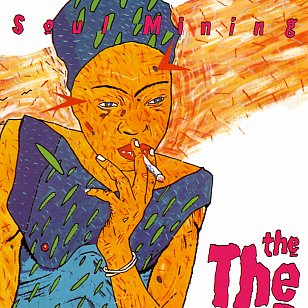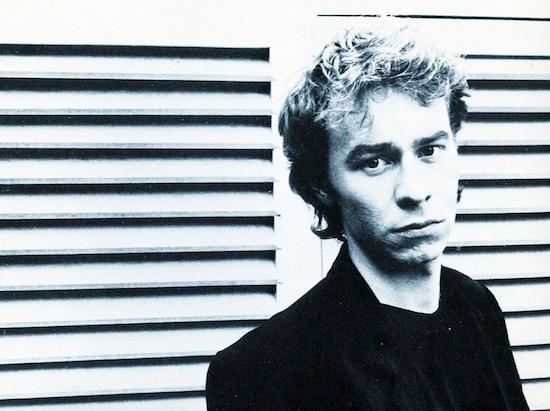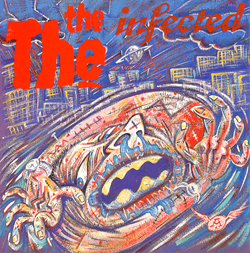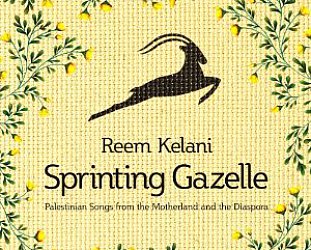Graham Reid | | 4 min read
Uncertain Smile

Although British punk fury exploded during the Labour government of James Callaghan (who succeed another Labour leader Harold Wilson, giving them about five years as an increasingly beleaguered minority government) the anger really became focused when Margaret Thatcher's hard-right Conservatives took over and unemployment rose, the recession bit hard, there were strikes and closures in industries . . .
The famed “winter of discontent” in '78-79 turned into a veritable Ice Age of Anger among many working class and middle class people who suffered under her regime of deregulation, the poll tax and so on.
The post-punk era now had a target more specific than vague anger towards the Queen and the Establishment.
Keyboard player/composer and singer Matt Johnson out of East London came of age in the punk era – he was 16 in '77 – but formed The The (him with a revolving door cast) the week Thatcher “ascended to power”, in the words of critic Huw Bucknell. And needless to say he filled his youthful lyrics with dyspeptic anger and observations.
After a debut Blue Burning Soul under his own name (for most purposes The The's debut although of course not recognised as such) he emerged from the underground with the remarkable Soul Mining which was an extraordinary marriage of electronics (mostly by him but Thomas Leer in places), powerful drumming by Zeke Manyika of Orange Juice, New York Doll's David Johansen on harmonica for Perfect and others.
Not the least being Jools Holland whose incendiary acoustic piano part on the still-thrilling seven-minute Uncertain Smile gave that synth-pop structure some real lift-off in its second half.
The album had hit-potential written large in its musicality although Johnson's downbeat lyrics were a neat counter-balance to the sheen of the surfaces. Check those dichotomies on The Sinking Feeling where he sings “I'm being raped by progress, tomorrow's world is here to stay . . . I'm just a symptom of the moral decay that's gnawing at the heart of the country . . .”
 The music might have aimed for the anthemic in places but the minor chords throughout and Johnson's churning angst kept them earthbound.
The music might have aimed for the anthemic in places but the minor chords throughout and Johnson's churning angst kept them earthbound.
Perhaps that was why Soul Mining – which had been preceded by excellent singles off it – barely cracked the top 30 in Britain, although the critical acclaim far outweighed its chart placing.
“Just why songs like Uncertain Smile, Perfect and This is the Day never made the commercial grade remains something of mystery,” wrote Ian Pye in a Melody Maker interview with Johnson in January '84, “but assuming one of the most self defeating pseudonyms known to pop music, The The (just in case you hadn't understood that MJ was the definitive article) almost certainly undermined their chances.”
Pye also wrote that Soul Mining was “unquestionably the album of '83”, and it certainly appeared in many best-of lists of that year, and even today in retrospective pieces.
In an NME review on its release Don Watson concluded with this: “In days when the pop song has been reduced to the reiteration of catch phrases, Matt Johnson flexes a rare literary flair. More importantly he has the command of music's immense possibilities to carry them through without self-indulgence.
“Ignore this LP if you must, but you'll be ignoring one of the year's rare heart-stopping moments.”
Not everyone was persuaded however, in a curious review in New Zealand's Listener Gordon Campbell – referencing Edie Cochran (?) and implying Johnson was an obsessively controlling (despite the rather large supporting cast) – remained immune.
He was also alone in his dislike for 21-year old Johnson's lyrics while others like Watson in NME considered them “a poetry of loneliness and worry but one that is believable and moving”.
Johnson had spent three years on the dole but beneath the smart surfaces and bleak lyrics of dislocation on Soul Mining there is a defiant optimism and a genuine effort to actually say something between melancholy and hope.
“I feel disgusted with what is going on in this country,” he told the Times correspondent Richard Langston in mid-'84. “The government, because they have an overwhelming majority, are doing all these outrageous things. At times I feel hypocritical because I am not doing that much about it but I am trying to through the expression of my music.
“I find it sad when someone like Boy George has access to millions of people when he appears on television and all he can say is, 'Oh they don't have any perverts in Canada'.
“Were people to use their positions there could be some kind of impact.”
 That fed into Soul Mining's follow-up, the angry Infected of late '86 which appeared in the Mojo Collection of important albums across the decades. It was much more successful commercially than Soul Mining despite its darker themes. Many critics default to Infected as Johnson's more accomplished statement in the Eighties for its splenetic attack on Britain under the yoke of Thatcherism, but in many ways it was just an extension and deepening of what he staked out with Soul Mining.
That fed into Soul Mining's follow-up, the angry Infected of late '86 which appeared in the Mojo Collection of important albums across the decades. It was much more successful commercially than Soul Mining despite its darker themes. Many critics default to Infected as Johnson's more accomplished statement in the Eighties for its splenetic attack on Britain under the yoke of Thatcherism, but in many ways it was just an extension and deepening of what he staked out with Soul Mining.
Soul Mining -- in a cover by his brother Andy Dog Johnson who designed artwork for a number of The The projects -- was the stepping off point into a new sound which is why it joins the ranks of Essential Elsewhere albums.
It was recognised as a bridge between pop (the snappy This is the Day with accordion), rock, nods to world music (the shadow of Peter Gabriel evident on pieces like The Twilight Hour and the percussion-driven Giant) and electronics with a smidgen of jazz (take a bow Mr Holland).
Yes, his lyrics can rub raw with self-obsession (Giant) but the juggle between dark and light, self and society, pop and melodrama are driven by thrusting rhythms and elevated by inescapable melodies which make Soul Mining a singular album of its era . . . and one with reach into the present.
Just try to get away from Uncertain Smile once it starts.
These Essential Elsewhere pages deliberately point to albums which you might not have thought of, or have even heard . . .
But they might just open a door into a new kind of music, or an artist you didn't know of. Or someone you may have thought was just plain boring.
But here is the way into a new/interesting/different music . . .
Jump in.
The deep end won't be out of your depth . . .




Ross McMillan - May 8, 2018
Ah yes, The The, Matt Johnson. Hauraki played this in the early eighties, and it was awesome. At the time it was stated by some DJ's that he played all the instruments on this song, and being an ex piano player, current drummer, was hugely impressed. Consequently brought all future albums & CD's. What a genius this guy is, and his music is just awesome. You cannot listen to just one song at a time. His are albums you have to sit down and have a proper listening session. Never tire of this great artist.
SaveSteve M. - May 8, 2018
You're right, Graham: a great album. I came to The The through the video album for Infected, which I think was on telly late one night (maybe on Radio With Pictures?), and went back to Soul Mining.
SaveFor me, though, Mind Bomb stands out as being prescient of today's world issues, and Dusk is emotionally wrenching.
Matt Johnson is one clever person, and everything he does is worth a read / listen, I think, and his music as The The doesn't seem to be particularly locked into a specific time period (other than Soul Mining's synths).
post a comment